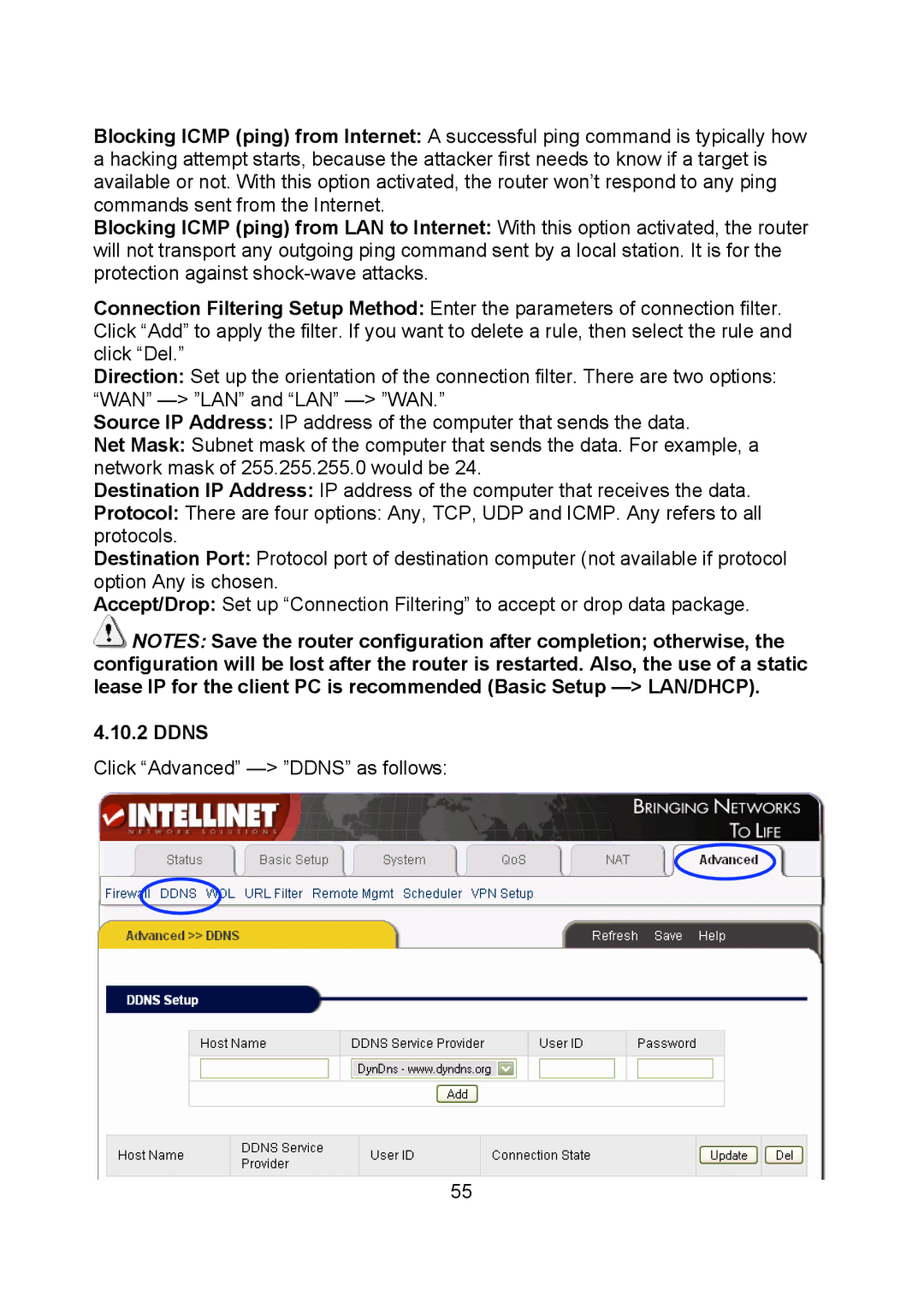
Blocking ICMP (ping) from Internet: A successful ping command is typically how a hacking attempt starts, because the attacker first needs to know if a target is available or not. With this option activated, the router won’t respond to any ping commands sent from the Internet.
Blocking ICMP (ping) from LAN to Internet: With this option activated, the router will not transport any outgoing ping command sent by a local station. It is for the protection against
Connection Filtering Setup Method: Enter the parameters of connection filter. Click “Add” to apply the filter. If you want to delete a rule, then select the rule and click “Del.”
Direction: Set up the orientation of the connection filter. There are two options: “WAN”
Source IP Address: IP address of the computer that sends the data.
Net Mask: Subnet mask of the computer that sends the data. For example, a network mask of 255.255.255.0 would be 24.
Destination IP Address: IP address of the computer that receives the data.
Protocol: There are four options: Any, TCP, UDP and ICMP. Any refers to all protocols.
Destination Port: Protocol port of destination computer (not available if protocol option Any is chosen.
Accept/Drop: Set up “Connection Filtering” to accept or drop data package.
![]() NOTES: Save the router configuration after completion; otherwise, the configuration will be lost after the router is restarted. Also, the use of a static lease IP for the client PC is recommended (Basic Setup
NOTES: Save the router configuration after completion; otherwise, the configuration will be lost after the router is restarted. Also, the use of a static lease IP for the client PC is recommended (Basic Setup
4.10.2 DDNS
Click “Advanced” —> ”DDNS” as follows:
55
